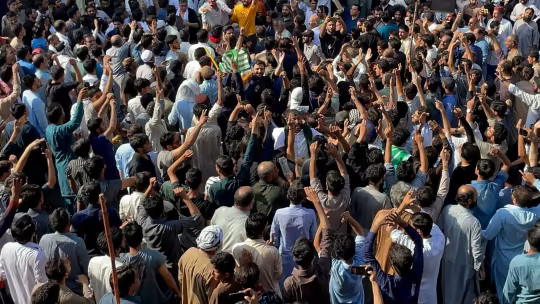Clutch
ELITE MEMBER

- Joined
- Aug 3, 2008
- Messages
- 17,011
- Reaction score
- -3
Surge in electricity costs triggers Pakistan protests
Popular anger threatens to derail the crisis-hit country’s $3bn IMF programme
Surge in electricity costs triggers Pakistan protests on twitter (opens in a new window)
Surge in electricity costs triggers Pakistan protests on facebook (opens in a new window)
Surge in electricity costs triggers Pakistan protests on linkedin (opens in a new window)
Save
current progress 0%
Farhan Bokhari in Islamabad and Benjamin Parkin in New Delhi
31 MINUTES AGO
0Print this page
Receive free Pakistan updates
We’ll send you a myFT Daily Digest email rounding up the latest Pakistan news every morning.
A surge in electricity costs in Pakistan has triggered nationwide protests in an outpouring of popular anger that threatens to derail the crisis-hit country’s $3bn IMF programme.
Pakistan narrowly avoided default in June after securing a loan from the Fund that came with strict conditions to reform the country’s economy, including cutting energy subsidies and imposing new taxes to reduce heavy losses in the power sector.
Combined with a weakened rupee, which pushed up the cost of the fuel imports the country needs to generate power, consumer electricity bills as much as doubled in July.
The ensuing rallies, in which protesters around the country have publicly burnt their bills, has led to mounting pressure on the caretaker government of prime minister Anwar ul Haq Kakar to take action.
But observers warn any sort of relief could violate the terms of the IMF deal and once again tip the country towards bankruptcy.
Cutting electricity tariffs would “immediately spark a new crisis with the IMF”, a senior government official told the Financial Times, resulting in the possible suspension of the Fund’s loan and putting Pakistan at risk of a default on its foreign payments.
Analysts said the crisis was the culmination of years of mismanagement of Pakistan’s power system, which chronically undercharges for electricity. They also estimate that as much as 30 per cent of power sent through the national grid is lost before it reaches consumers, on account of poor maintenance and siphoning.
“This is a situation that has emerged over the past decades. It can’t be managed overnight,” said Salman Naqvi, a Karachi-based analyst. “Right now, the public is very outraged but the government cannot offer any incentives.”
Kakar’s government is considering alternatives including allowing consumers to stagger payments, in the hope that consumption and bill prices will fall as high temperatures subside ahead of winter.
Pervez Tahir, the former chief economist of the national planning commission, said that the government should redirect some development spending from the annual budget to help power consumers. “Otherwise, this crisis will grow,” he said.
Pakistan has over the past 18 months descended into one of the worst economic meltdowns in its history, with consumer inflation rising 28 per cent in July from a year earlier. Foreign reserves fell to a low of $3.7bn in May, less than enough for one month’s worth of imports, before the IMF loan was finalised.
Anger over the cost of living could stoke political turmoil ahead of elections, which are now expected to take place early next year after a delay.
Diplomats said this could benefit the country’s opposition including allies of jailed leader Imran Khan, who was sentenced to three years in prison in August but remains popular.
Khan denies the allegations and supporters of his Pakistan Tehreek-e-Insaf party argue that he is the victim of political persecution by the army and erstwhile government of the Pakistan Muslim League-Nawaz party, which resigned this month to prepare for the polls.
Free Imran Khan

